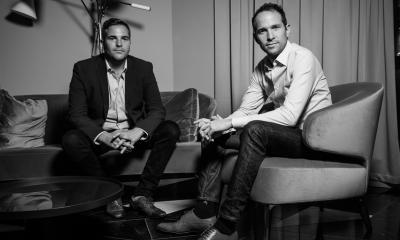
If you are thinking about setting up in a new location, considering launching a new range or just want to make a marketing splash, a "pop-up" could offer an affordable solution. Simon Pitkeathley, chief executive of regeneration agency Camden Town Unlimited, explains where to start
What is a pop-up business?
"It's a business that temporarily occupies vacant premises. You typically pay little or no rent because you are promoting the worth of what was an unused space for the landlord. Pop-ups are primarily a PR tool, but you can make money if you get your marketing right because they can enable you to reach new customers."
In which sectors are pop-ups most relevant?
"They probably lend themselves better to creative businesses, but it's not a restrictive format. We've had architects, an advertising agency, artists and fashion designers. Cafes and restaurants are also increasingly setting up pop-ups. Larger brands such as Uniqlo set up pop-up shops to generate PR, but small firms can use them to create a physical presence without paying high rental charges."
Why would a firm open a pop-up business?
"They enable firms to try out ideas before committing large amounts of money. If you have an established premises, you could use a pop-up shop to test out a second location. Alternatively, if you're an online business, you could learn how to run a premises. Currently, firms get a lot of press coverage if they use the phrase "pop-up", and it can create a sense of urgency for customers if you market something as 'limited edition'."
Where do I start?
"Try to find a suitable scheme in your area where someone is offering vacant premises to firms. Some local authorities may be able to help, but most aren't familiar with the idea yet. Otherwise, be proactive and contact the landlord directly, or strike up a rapport with the letting agent.
"Explain that instead of the property looking derelict, it will be bright and occupied. If a property is vacant, the landlord pays business rates, so if you pay those they save costs. The hardest challenge is persuading the landlord.
"Agree that you'll leave after a certain time, or within two weeks if they find a tenant. Ask for a 'License to Occupy', so that both parties are clear about the terms. This is a simpler, cheaper document than a lease. Pop-up businesses tend to open for between six weeks and a year."
What do I do when I've found a location?
"Making a premises look good requires time, effort and money. Consider doing it in collaboration with other businesses and sharing decorating costs. Remember, the landlord is more likely to be interested if you open the shop all day, every day, so it can be better to share that responsibility."
How can I attract customers?
"Approach your local paper, distribute flyers, and tell customers on your website, blog and social networks. You should also contact the council, as it's positive for the area and they might give you free publicity. You could even ask them to come down and open it."
With thanks to Mark Stuart from the Chartered Institute of Marketing



